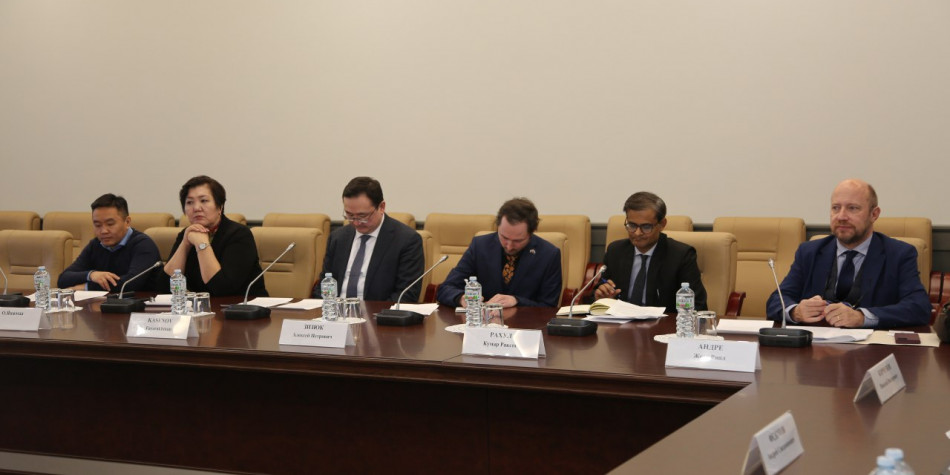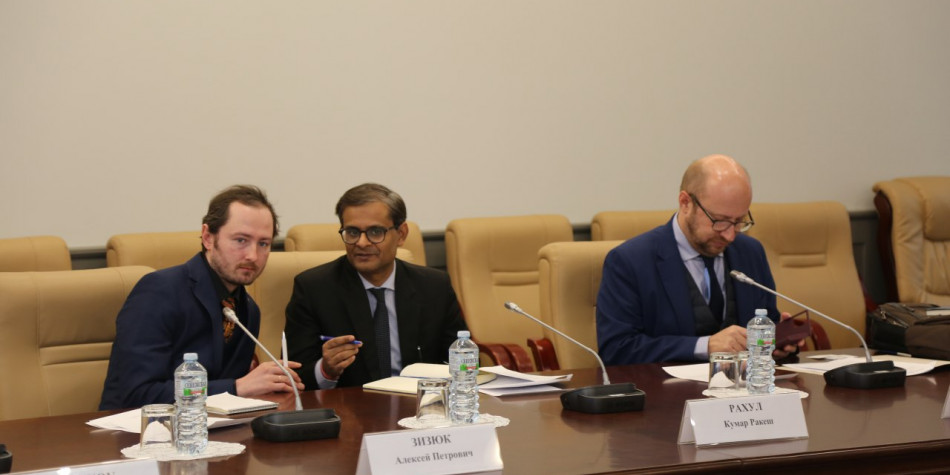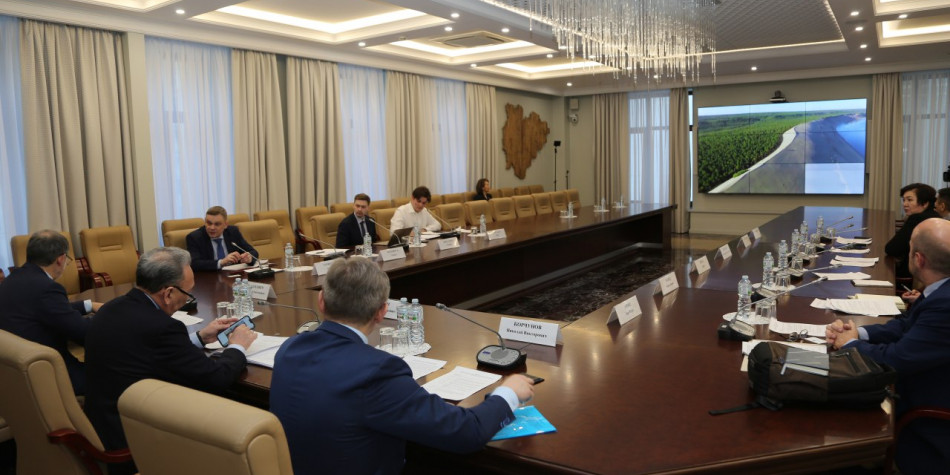
The organizers of the conference are the Ministry of the Russian Federation for the Development of the Far East and the Arctic together with the Government of the Republic of Sakha (Yakutia), the operators will be the Roscongress Foundation and the Sever REC. The event is included in the Plan of the Russian Federation's Chairmanship in the Arctic Council in 2021-2023.
Scientists and experts from Russia and a number of foreign countries will discuss the impact of climate change on the socio-economic development of the Nordic countries and regions, the tasks of environmental monitoring and forecasting, promising technologies aimed at minimizing risks to the environment, as well as to the population, engineering and social infrastructure built on frozen soils.
The Permanent Representative of the Republic of Sakha (Yakutia) to the President of the Russian Federation, First Deputy Prime Minister Andrei Sandaminovich Fedotov, held a working meeting on the organization of a scientific and practical conference. It was attended by representatives of the Embassies of Brazil, India, Mongolia, China and Kazakhstan.
During the meeting, the director of the Control Center of REC "North" Evgeny Kolganov told about the activities of REC "North", as well as the conference on
issues of climate change and permafrost melting, demonstrated projects and tasks that famous scientists of Yakutia are engaged in.
Ambassador-at-Large of the Russian Foreign Ministry, Chairman of the Committee of Senior Officials of the Arctic Council Nikolai Korchunov noted:
"We are the only country that creates a unified system for monitoring the state of frozen soils. It will allow us to identify bottlenecks, risks, better understand what is happening with the Arctic ecosystem, which is called the "weather kitchen" for the whole globe, and develop protocols to prevent incidents."
Sergey Terashkevich, Deputy Director of the Department of International Cooperation of the Ministry of Science and Higher Education of the Russian Federation, stressed that the achieved results of world-class RECs and their integration into the real sector of the economy and the social sphere contribute to the introduction of new mechanisms for effective cooperation of science, education and business.
Following the meeting, representatives of the embassies expressed interest and willingness to participate in the international conference, as well as to start cooperation with REC "North" in the implementation of joint projects.




